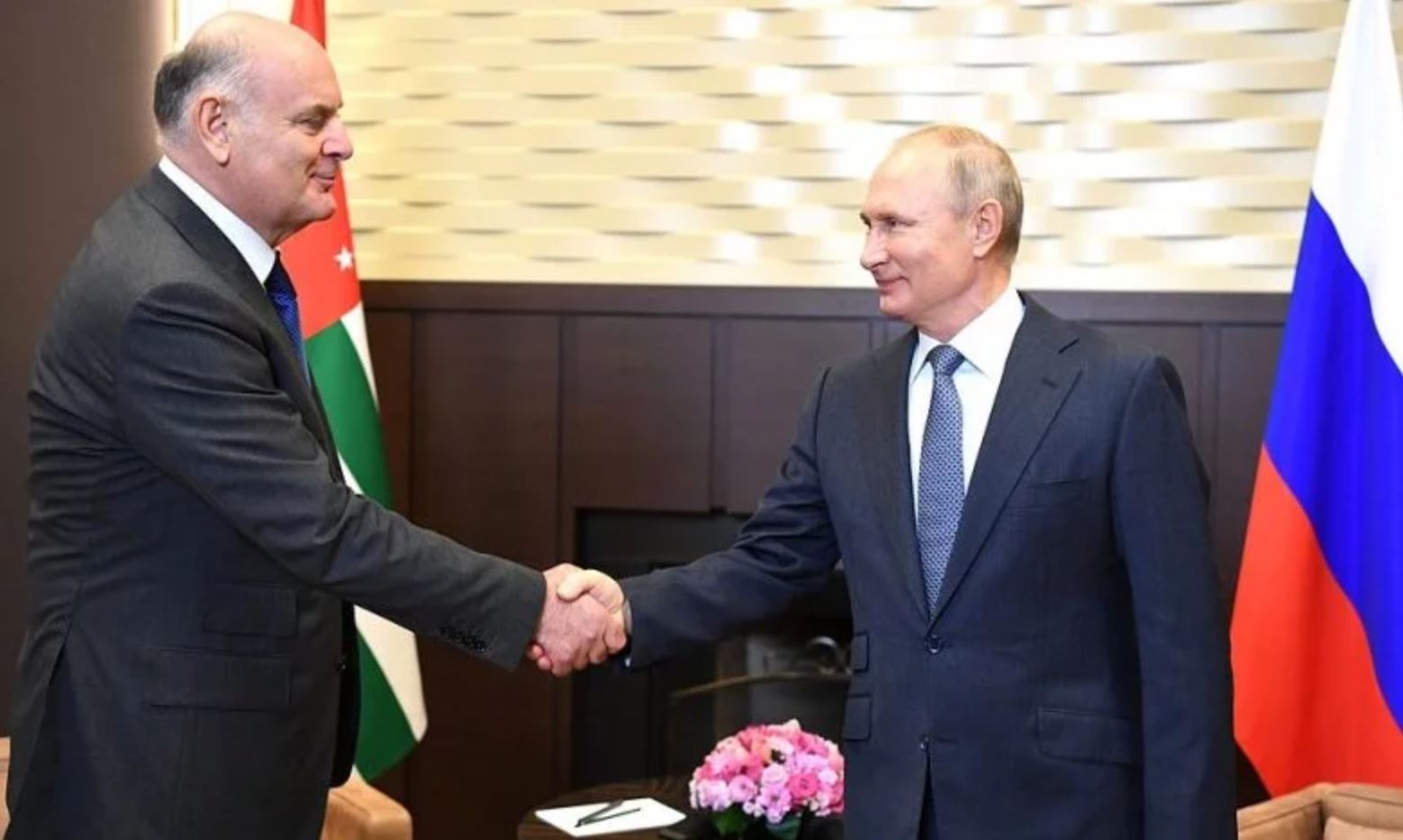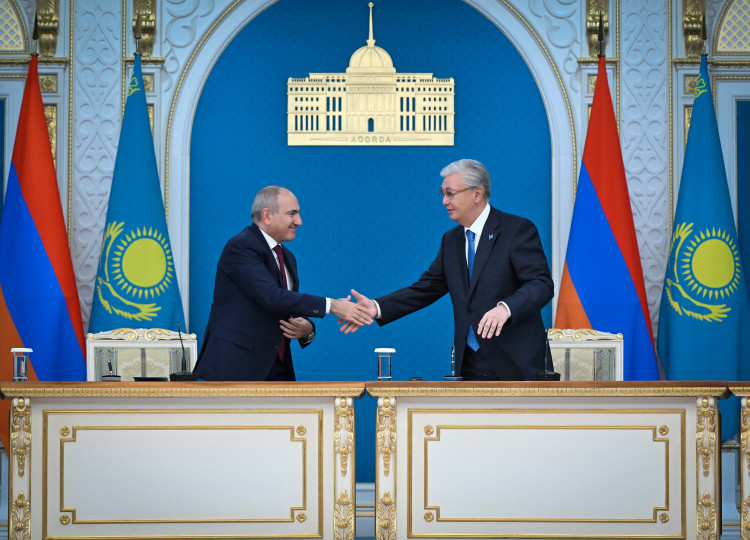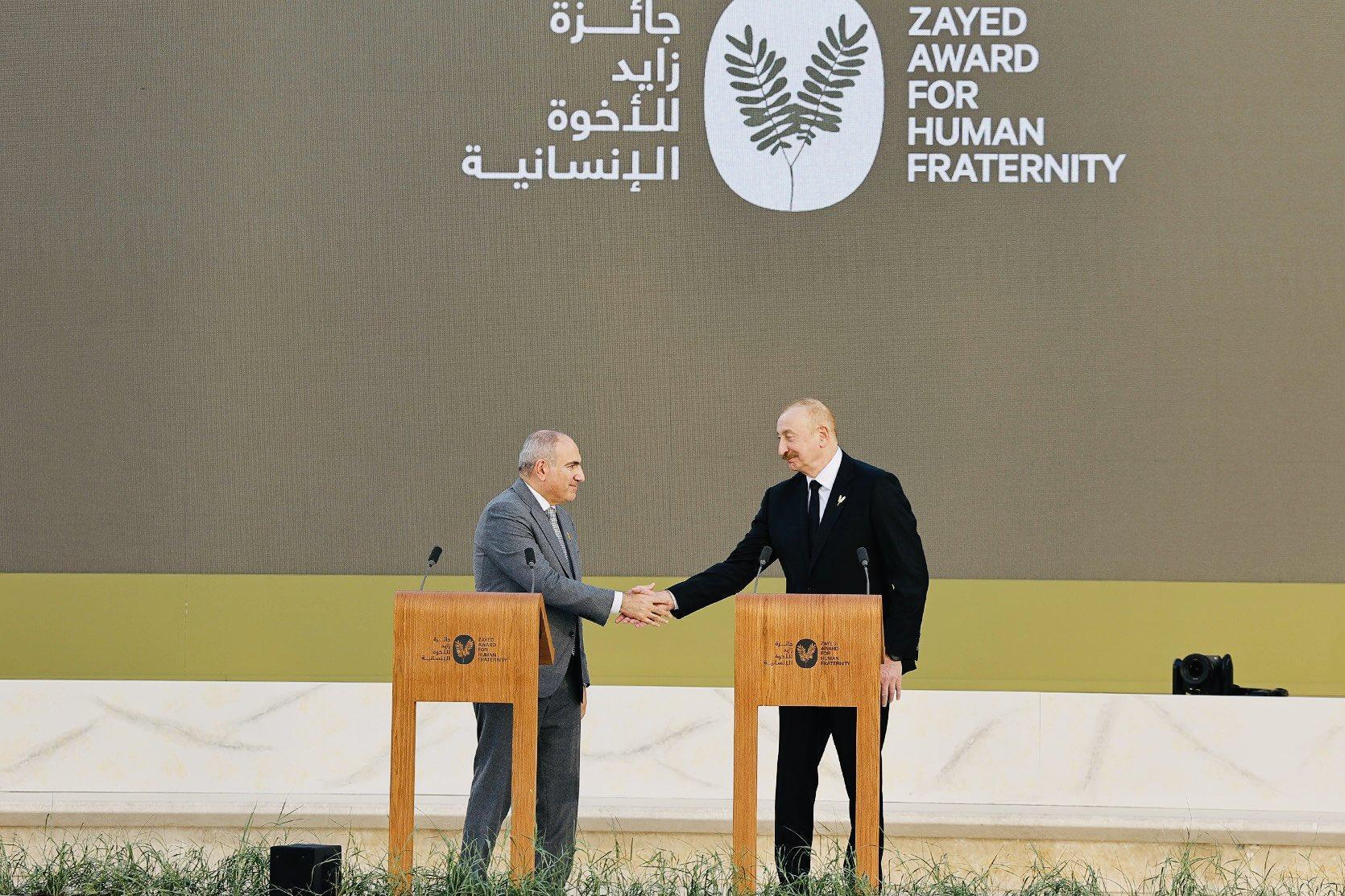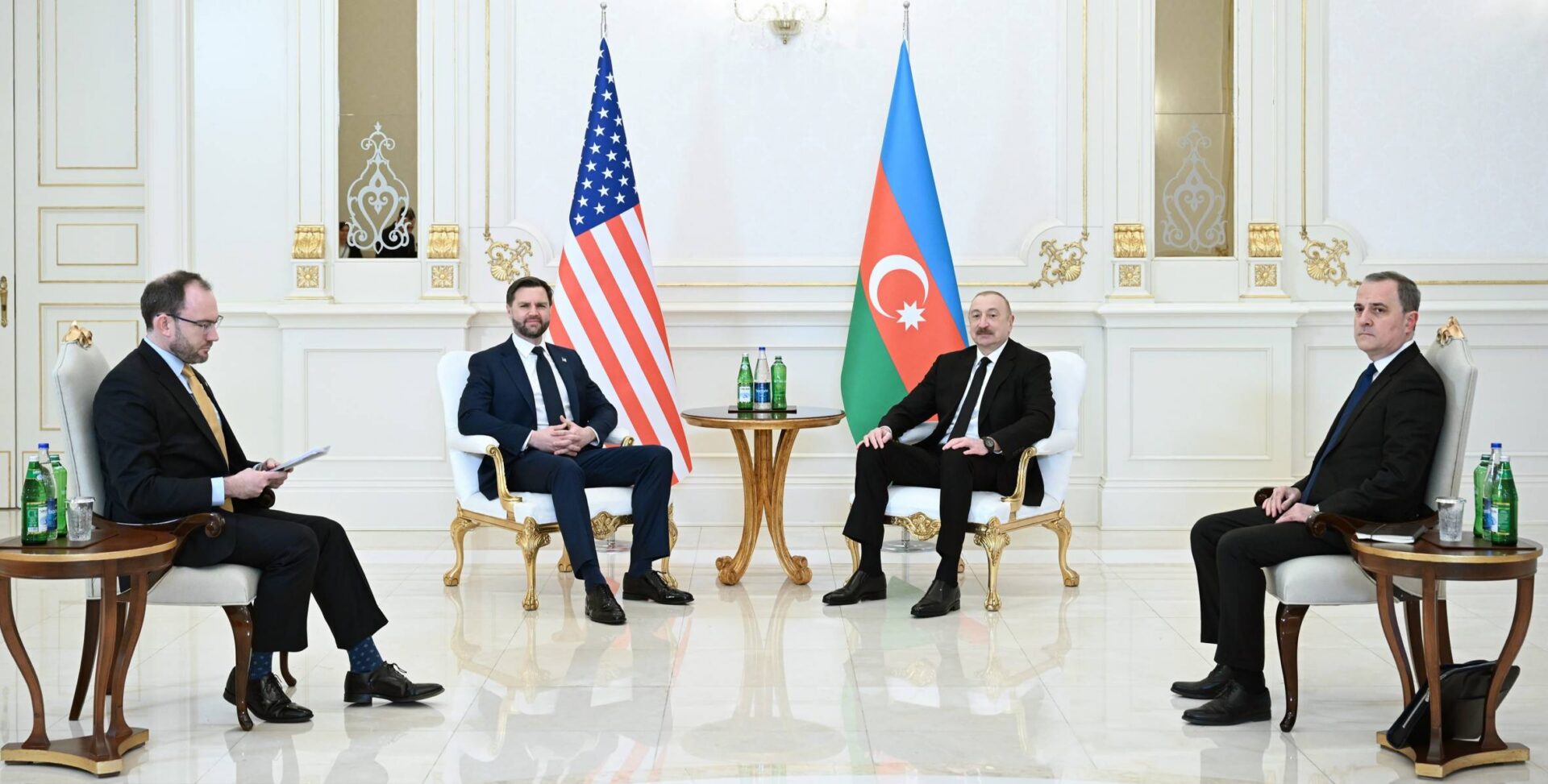
Abkhazia Bolsters Linkages With Russia
Abkhazia Bolsters Linkages With Russia
On November 24, the Georgian Ministry of Foreign Affairs strictly condemned Sukhumi and Moscow’s joint approval of a program to create a common socio-economic space uniting breakaway Abkhazia and Russia. Tbilisi slammed it as “another illegal step toward the de facto annexation” of its occupied region (Mfa.gov.ge, November 24). The initiative, formally titled “The Formation of a Common Socio-Economic Space Between the Russian Federation and the Republic of Abkhazia [sic] on the Basis of the Harmonization of Legislations,” was signed by both sides on November 12, after a three-hour-long meeting between Russian President Vladimir Putin and Abkhazia’s “head of state,” Aslan Bzhania, in Sochi. The text of the 46-point program only appeared on the official website of the Abkhazian president two weeks later (Presidentofabkhazia.org, November 24).
The “socio-economic” program, in fact, underpins the “Treaty on Alliance and Strategic Partnership” that Russia and Abkhazia concluded in 2014 (Kremlin.ru, November 24, 2014). And the measures listed in the newly approved document aim at reinforcing the implementation of the provisions of the six-year-old treaty but with added measures for integrating Abkhazia with Russia (Ekho Kavkaza, November 25).
Russia began to probe the Abkhazian establishment’s attitude toward such an initiative as early as late last year. Reportedly, a draft version of the bilateral document, then bearing the relatively neutral title “Harmonization of the Socio-Economic Space,” first appeared in Abkhazia on December 9, 2019. The wording of this proposed program implied an agreement to privatize the breakaway statelet’s energy sector, create new provisions for the sale of local real estate, as well as to identify non-governmental organizations (NGO) that receive international funding as “foreign agents,” in the Russian manner (Ekho Kavkaza, September 21, 23)
Abkhazian economic pundit Akhra Aristava, formerly the region’s deputy minister of economics, in commenting on the program noted that Russian interests are well protected in the final document, while those of Abkhazia are not. According to Aristava, the agreement is “lopsided” and challenges the key point of the 2014 treaty such as mutual non-interference in internal affairs, especially when it comes to economic issues and Russian investments inside Abkhazia. He argued that the program to establish common socio-economic space contains many hidden threats that might jeopardize Abkhazians’ very mode of life. Criticism of the initiative additionally came from other influential figures of the Abkhazian establishment. Akhra Bzhania, a former member of the local parliament and the co-chair of the civic-political movement Akhyatsa, expressed concern about clauses in the document pertaining to dual-citizenship and migration policy as well as energy regulations, which were absent in the 2014 treaty due to Sukhumi’s stubborn resistance (Aiaaira.com November 26, 29; Apsadgil.info, December 2). Nataly Smir, who chairs the budgetary committee of the Abkhazian “parliament,” indicated that despite some positive aspects of the program, which may help Abkhazia’s idling economy, the legislator nevertheless worried about the risks to Sukhumi’s political independence. “A nation ready to sell everything is doomed,” she said. Several well-known representatives of Abkhazian civil society also complained that the duplication of Russian legislation on “foreign agents” will harm their “country’s” NGO sector and contribute to the further isolation of Abkhazia (Ekho Kavkaza, November 26, December 1).
The increasingly worsening socio-economic situation in internationally isolated Abkhazia, which is already almost totally dependent on Russia, forced Bzhania into the role of unquestionable suppliant at his meeting with Putin in Sochi. Since his election as president in April 2020, Bzhania has paid seven visits to Russia, each time striving to mitigate the problem of shrinking funding coming from Moscow. At the news conference after the November 12 Sochi meeting, Bzhania attempted to allay fears that the newly agreed economic program would further restrict Abkhazia’s “sovereignty,” taking pains to emphasize the document’s positive proposals, such as re-launching the operation of the strategically important Sukhumi airport, which had stood unused since the Georgian-Abkhaz armed conflict in 1992–1993. Bzhania also underlined the lessons learned from the war in Azerbaijan’s occupied region of Karabakh and importance of strengthening relations with Russia in this regard. He contended that the issue of selling real estate to foreigners—which is so sensitive for Abkhazians—was not discussed at his meeting with Putin (Ekho Kavkaza November 17).
The bilateral document’s clauses on dual citizenship and a new migration policy are also hugely divisive inside Abkhazia since the elites in Sukhumi reasonably associates those provisions with the possibility of losing the region’s valuable real estate to foreigners (see EDM, June 15). At the same time, a harmonization of regulations in the energy sphere would give Russia the right to take over Abkhazian energy production facilities even though existing Abkhazian legislation bans the privatization of local power plants with a capacity higher than 5 megawatts. At the insistence of the Abkhazian side, the explicit wording about the privatization of Abkhazian power plants, which was present in the 2019 draft of the agreement, was removed from the final document and replaced with a more general passage about Russian investment. While speaking about Abkhazia’s chronic energy shortages and the acute need for Russian assistance, Bzhania conspicuously omitted any mention of electricity supplies the region continues to receive—and refuse to pay for—from Georgia thanks to the Inguri hydropower station, which stands along both sides of the de facto border (Weg.ge, December 2017).
Although Russia assures that the new joint “socio-economic” program cannot and will not entail a change in Abkhazia’s political status, the Abkhazian elites continue to harbor such fears. Indeed, their worries about Russian plans to further undermine their statelet’s already ephemeral “independence” increased following multiple statements earlier this year from several well-known Russian public and political figures about the incorporation of the self-proclaimed separatist regions in the post-Soviet space into the Russian Federation (Ekho Kavkaza, July 8, September 21; ldpr.ru, September 9). Moreover, Moscow recently rekindled the issue of protecting the property rights of the “Russian-speaking population” in Abkhazia (Echo Kavkaza, September 21, 23, November 10; Abaza-TV, November 9).
One possible reason behind the recent push to form a common socio-economic space between Abkhazia and Russia might be Moscow’s discontent with the quality and pace of the implementation of the 2014 treaty with Sukhumi. And the worsening economic conditions in Abkhazia at present give Russia an opportunity to capitalize on the situation. The Abkhazian establishment’s criticism of the program was likely publicized on purpose, thus helping the government in Sukhumi maintain its delicate balance between pro-Russian gestures and relative independence. It remains to be seen how long Moscow can and will tolerate this game.


